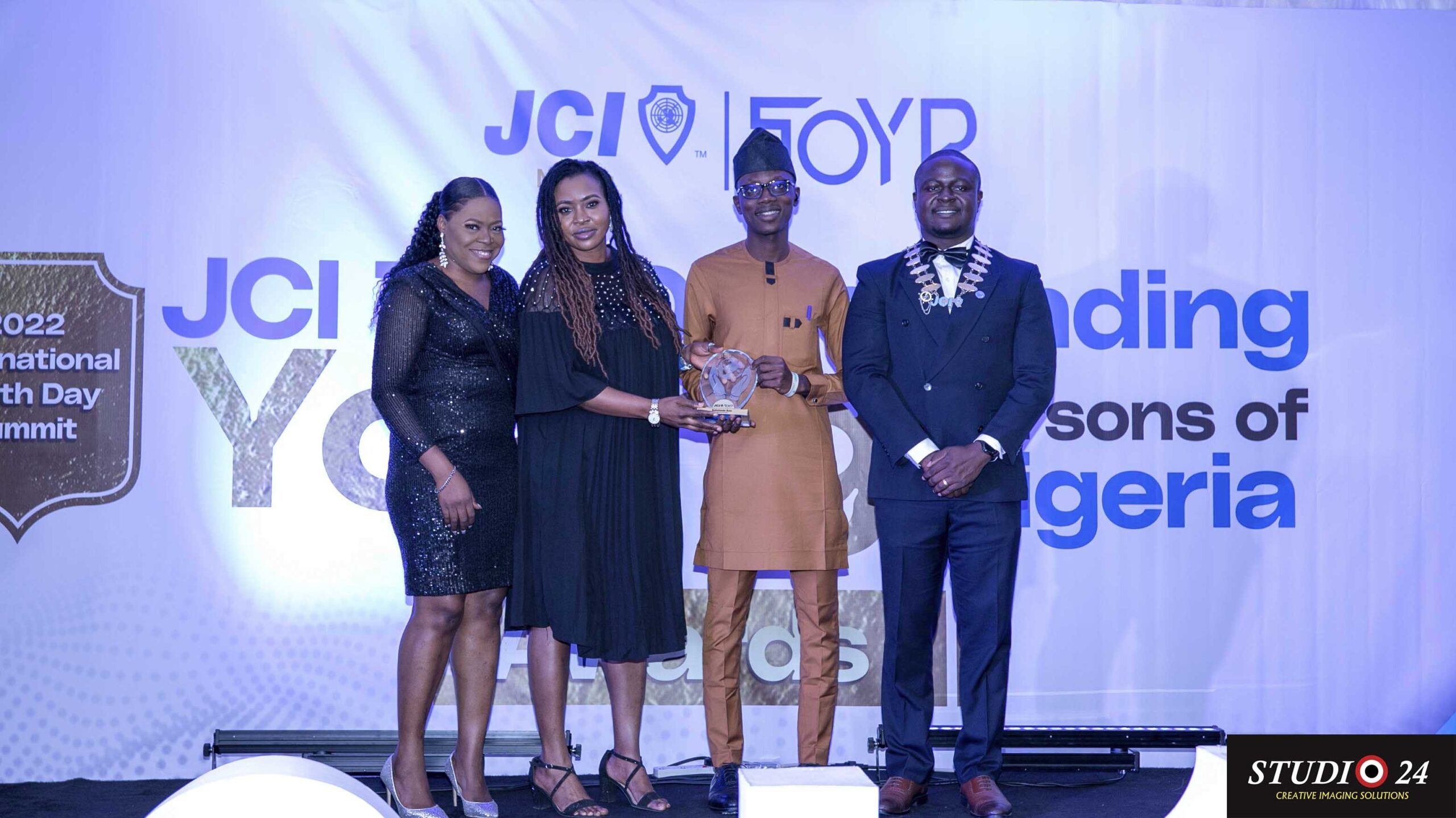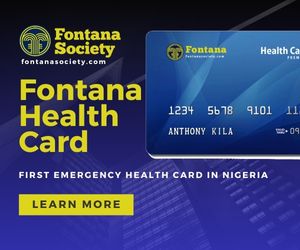Growing in undeserved community motivated me to be creative
Bale
The co-founder, R.E.T.I.N.A Initiative, Babatunde Bale, who recently got awarded by Junior Chambers International, JCI as one of the 10 outstanding young persons in Nigeria, for developing the first ever first aid eye kit, share his experience in bringing change to humanity.
Bale who grew up in Orile, an underserved low-income community explained that the first aid eye kit, a portable ultra-modern safety health pack contained different protective eye wears and an informative guide designed to quickly and specifically manage emergency eye injuries. He noted that the first-of-its-kind intervention aimed to bridge the gap in providing effective and rapid management of emergency eye injuries. And by implication, reduce vision loss and increase visual outcomes.
Excerpt of the interview
Who is Babatunde Bale
My name is Babatunde Bale. I grew up and spent most of my childhood days in Orile-Iganmu, a low-income community in Lagos State. I am the first child born into a polygamous of eight children. As a young boy, growing up in Orile was a very tough and challenging experience. I was constantly exposed to many social vices like thuggery, armed robbery, street fights and cybercrime. Living within this community motivated me to become more focused in the pursuit of my career goals.
You developed a first aid eye kit, the first of its kind. Tell us more about it.
In a bid to challenge the status quo, I and Amarachi Esonwune, both Optometry students of the University of Benin, UNIBEN, UNIBEN, and co-founders of R.E.T.I.N.A Initiative, led a team of other change-makers; Clinton Okechukwu, Grace Okolie, Femi Daniel, Godsglory Braimoh, Lynette Amematekpor, Ebenezer Osarenren, Michael Asije, Susan Macaulay and Sordiq Adeniyi, launched the first aid treatment for eye injuries. Our team educate, train and equip high school students and teachers in underserved communities on how to prevent and manage emergency eye injuries through the first aid kit.
Presently, our school-based health campaign, running now over a year, in different locations such as Edo State, Lagos State, Ogun State and Kumasi, Ghana, has Impacted over 1,200 students and teachers in 12 different schools. We empowered them with life-saving skills on how to avoid and manage the occurrence of minor ocular injuries like foreign particles, chemical exposure, cuts or puncture and blow to the eye.
Why a first aid kit for eye treatment?
Globally, the leading cause of non-congenital monocular blindness amongst children is ocular trauma and eye injuries. According to the World Health Organization, WHO, about 1.6 million people are blind from eye injuries, 2.3 million are visually impaired in both eyes and 19 million with unilateral visual loss.
Ocular trauma is a preventable cause of blindness and visual impairment which has a significant impact on a patient’s quality of life. It includes all damages caused to the eye and its adnexa due to direct contact with stationary or mobile, blunt or sharp, or hot objects; chemical substances; sources of electrical power; or different types of radiation. Its occurrence is more predominant in developing communities, occurring frequently in children, young adults, and males. Hence, it poses a public health concern for building a sustainable healthcare system.
Again, studies have shown that timely diagnosis and treatment of eye injuries in children can help to ameliorate its morbidity. However, most cases are not reported early enough for proper attention and treatment.
I and my team decided that intensifying health education for children, parents and teachers will go a long way in reducing ocular injuries and vision loss in children, and others. Hence, the development of the first aid kit.
Aside from the JCI award of 10 young outstanding people in Nigeria, which other award and recognition have you received?
As an Optometry student, I have demonstrated exemplary leadership qualities among my peers. I currently serve in the capacity of the Secretary-General of the Nigerian Optometric Students’ Association, UNIBEN. And I am among the top five students with the overall best academic result in my class.
Well, my academic performance has brought me many laurels. I emerged as the first Optometry student globally to be a recipient of the Wells Mountain Initiative. Vermont, USA scholarship. Similarly, I am also a recipient of the Gbaja Education Grant initiated by the Speaker of the Federal House of Representatives of Nigeria.
Furthermore, I am a United Nations SDG Campus Ambassador under the Millennium Fellowship. An alumnus of the Clinton Global Initiative University founded by former U.S. President, Bill Clinton. A fellow of the HarvardX Crossroads Emerging Leaders Program. by Harvard Business School. An OpportunityDesk Impact Challenge for Changemakers winner. An alumnus of the Young Professionals Bootcamp. A finalist for the Active Citizenship Award in health. A Pollination Project $1,000 seed grant awardee. A two-time Peace First mini-grant awardee. A 4YouthbyYouth HIV Self-testing contest winner. And among the 100 Most Inspiring Nigerian Students.
What is your future goal?
My ambition is to see that access to basic health care is available for all, especially those in marginalized communities. So, I am committed to increasing access to impact-driven and affordable healthcare services for marginalized communities in Nigeria through innovation, community interventions and research.
To my immediate community, I will collaborate to see that policies through evidence-based research and developing interventions that will help provide universal access to an equitable, affordable, sustainable and effective health system is provided for the most vulnerable populations like people living with disability, internally displaced persons, elderly persons and young girls.
About the author
Elizabeth Osayande is a CIAPS Graduate of Media & Communication.






